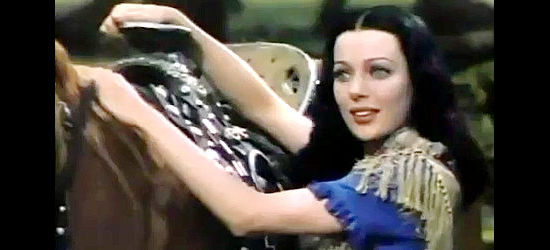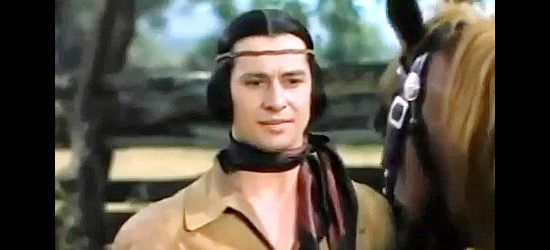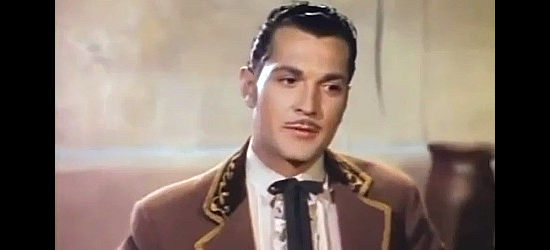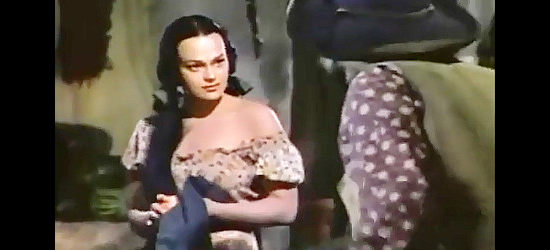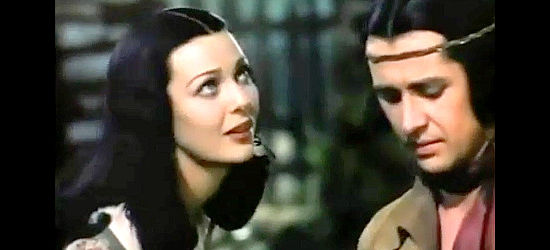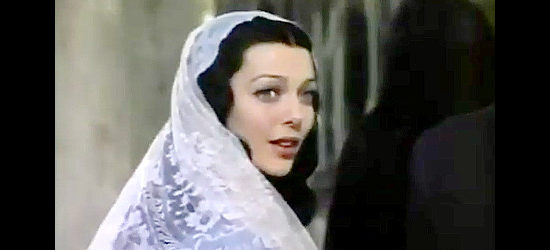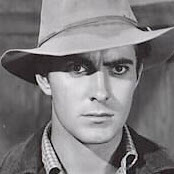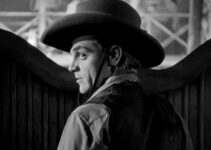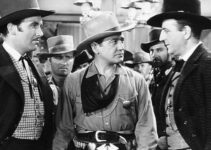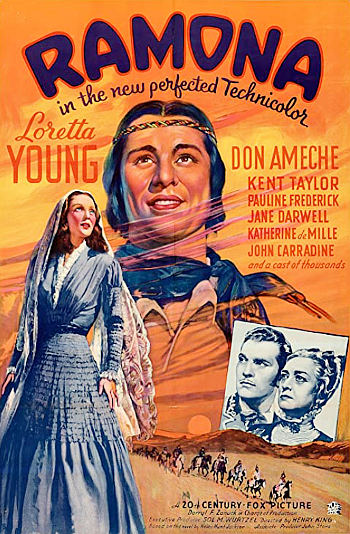 Loretta Young is Ramona, a young woman back home from convent and reunited with her “brother” Felipe in California, 1870.
Loretta Young is Ramona, a young woman back home from convent and reunited with her “brother” Felipe in California, 1870.
They seem very much like a young couple in love. But Senora Moreno frowns on the relationship because of a secret in Ramona’s past.
She need not worry.
At an annual fiesta that accompanies the shearing of the goat herd, Ramona’s head is turned by Alessandro (Don Ameche), son of an Indian chief.
He quickly falls for Ramona as well and agrees to stay by her side when Felipe suffers a serious injury in a horse race. In fact, the young couple plan to marry.
But Senora Moreno disapproves of the new relationship as well, partly because of the stain it would put on the family’s good name should Ramona marry an Indian.
She threatens to send Ramona back to the convent where she’ll be forced to behave and locks her in her room until that can be arranged.
Felipe intervenes, helping Ramona elope with Alessandro. They settle on his lush farm and have a daughter together.
But their trouble isn’t over, because white settlers moving into the area covet the land where Alessandro and his fellow Indians live.
The first Western shot in the then-new technicolor three-strip process, this is a lovely looking film.
And while Loretta Young and Don Ameche are difficult to swallow as an Indian couple, it’s a relatively enjoyable film as well.
Just go into it knowing “Ramona” is more love story than Western. And that means more melodrama than action.
Among the more charming scenes is the meeting of Ramona and Alessandro. She’s picking apples as a treat for a visiting priest when she slips, leaving her dangling high up in a tree. Alessandro rides to her rescue.
By the way, Ramona’s “secret” is that she’s half-Indian. Though raised by Senora Moreno as white, she’s truly the daughter of her brother-in-law and an Indian woman.
Loretta Young was keeping her own secret during filming. She’d just given birth to a child fathered by Clark Gable when they were working together on “Call of the Wild.” But she passed the daughter off as an adopted child and said stress, not pregnancy, was the reason filming had to be delayed on this film.
She’d go on to appear in two more memorable Westerns, “Along Came Jones” (1945) opposite Garry Cooper and “Rachel and the Stranger,” (1948) opposite Robert Mitchum and William Holden.
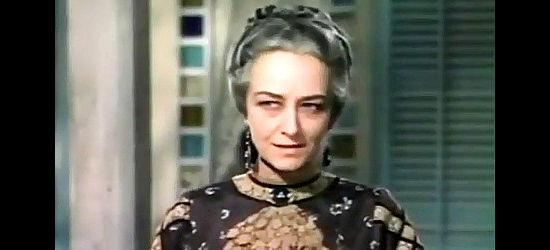
Pauline Frederick as Senora Moreno, keeping a watchful eye over Ramona and her secret in Ramona (1936)
Directed by:
Henry King
Cast:
Loretta Young … Ramona
Don Ameche … Alessandro
Kent Taylor … Felipe Moreno
Pauline Frederick … Senora Moreno
Jane Darwell … Aunt Ri Hyar
Katherine DeMille … Margarita
Victor Killan … Father Gaspara
John Carradine … Jim Farrar
J. Carroll Naish … Juan Can
Pedro de Cordoba … Father Salvierderra
Charles Waldron … Dr. Weaver
Claire Du Brey … Marda
Russell Simpson … Scroggs
William “Billy” Benedict … Joseph Hyar
Robert Spindola … Paquito
Chief Thundercloud … Pablo
Runtime: 84 min.
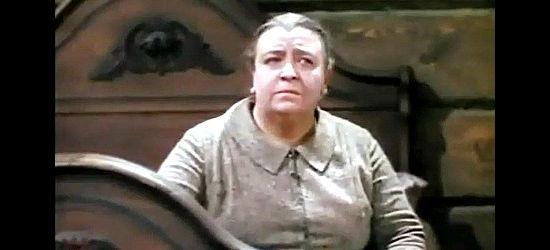
Jane Darwell as Aunt Ri Hyar, the woman who takes in Alessandro, Ramona and their baby in Ramona (1936)
Memorable lines:
Father Salvierderra: “Oh, this is like old times. Ramona, home from the convent. And Felipe, smiling because she is.”
Senora Moreno: “When I took Ramona into my home, I did not dream anything like this would happen.”
Father Salvierderra: “You’ve been blind. Felipe has loved her ever since they were children.”
Senora Moreno: “I would rather see him dead than married to her.”
Father: “Why?”
Senora Moreno: “When he marries, I want to be able to look into the eyes of my grandchildren without shame.”
Ramona to Alessandro: “Are you always around when ladies are in distress?”
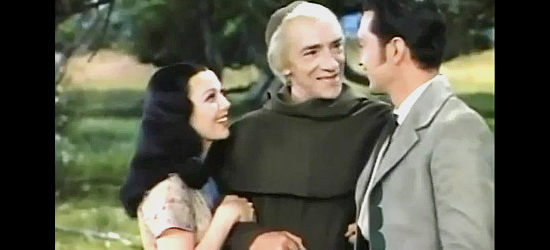
Pedro de Cordoba as Father Salvierderra, welcomed to the Moreno hacienda by Ramona (Loretta Young) and Felipe (Kent Taylor) in Ramona (1936)
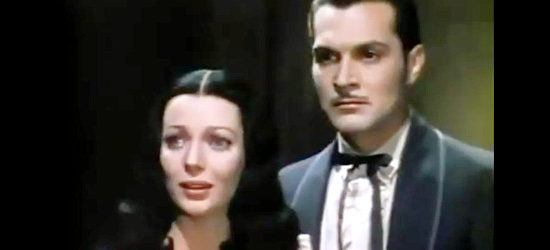
Loretta Young as Ramona and Kent Taylor as Alessandro when Senor Moreno announces a threat to send her back to convent in Ramona (1936)
